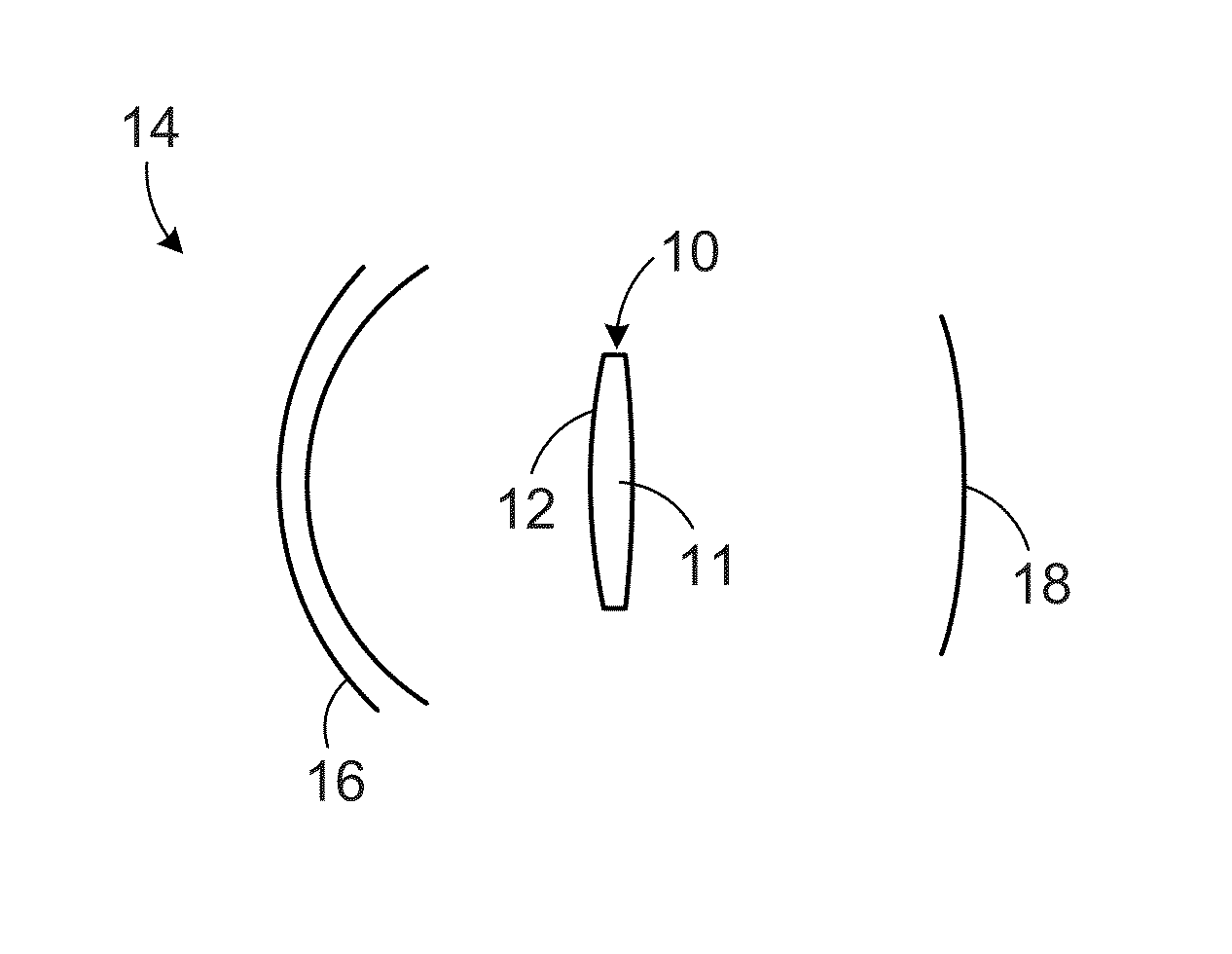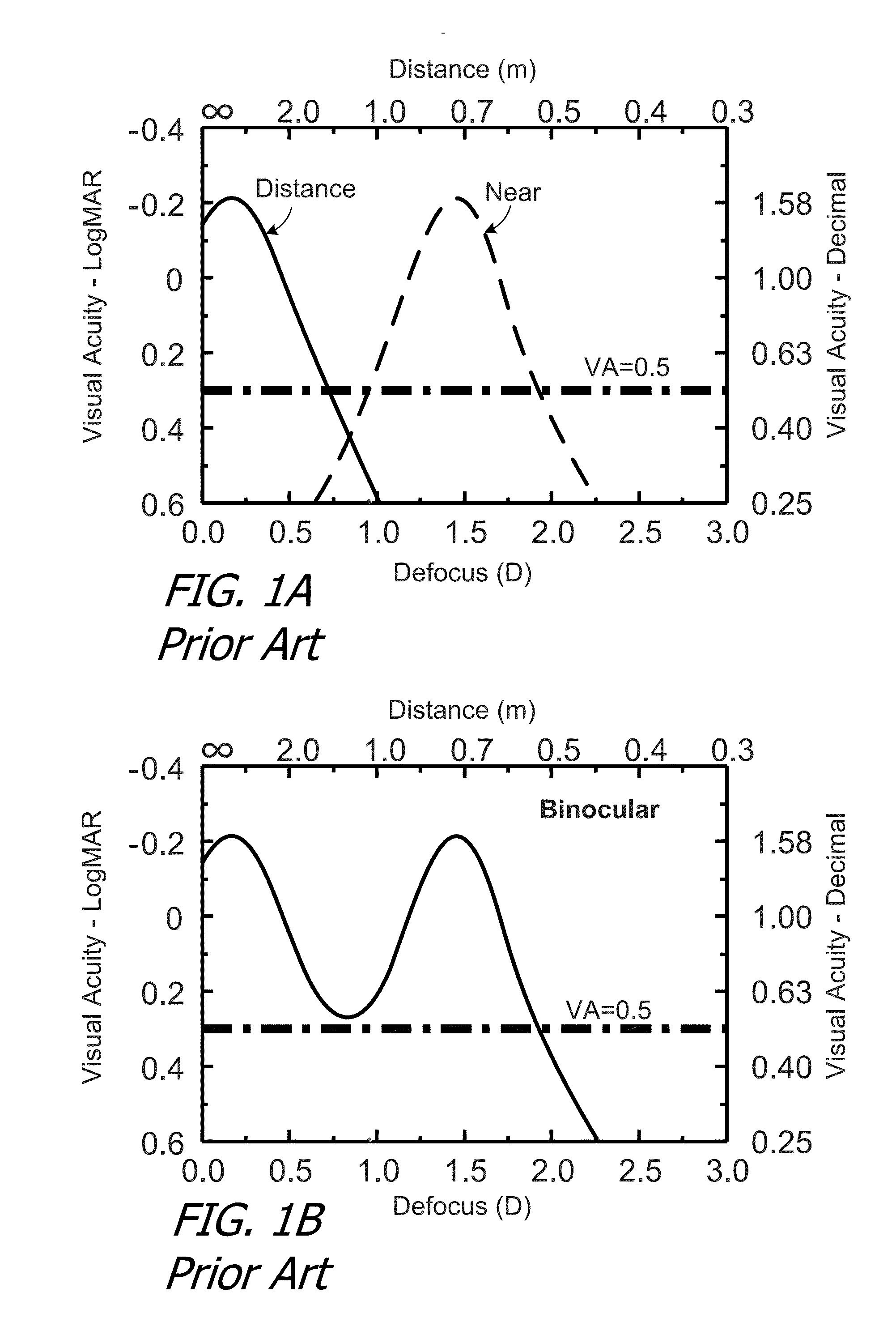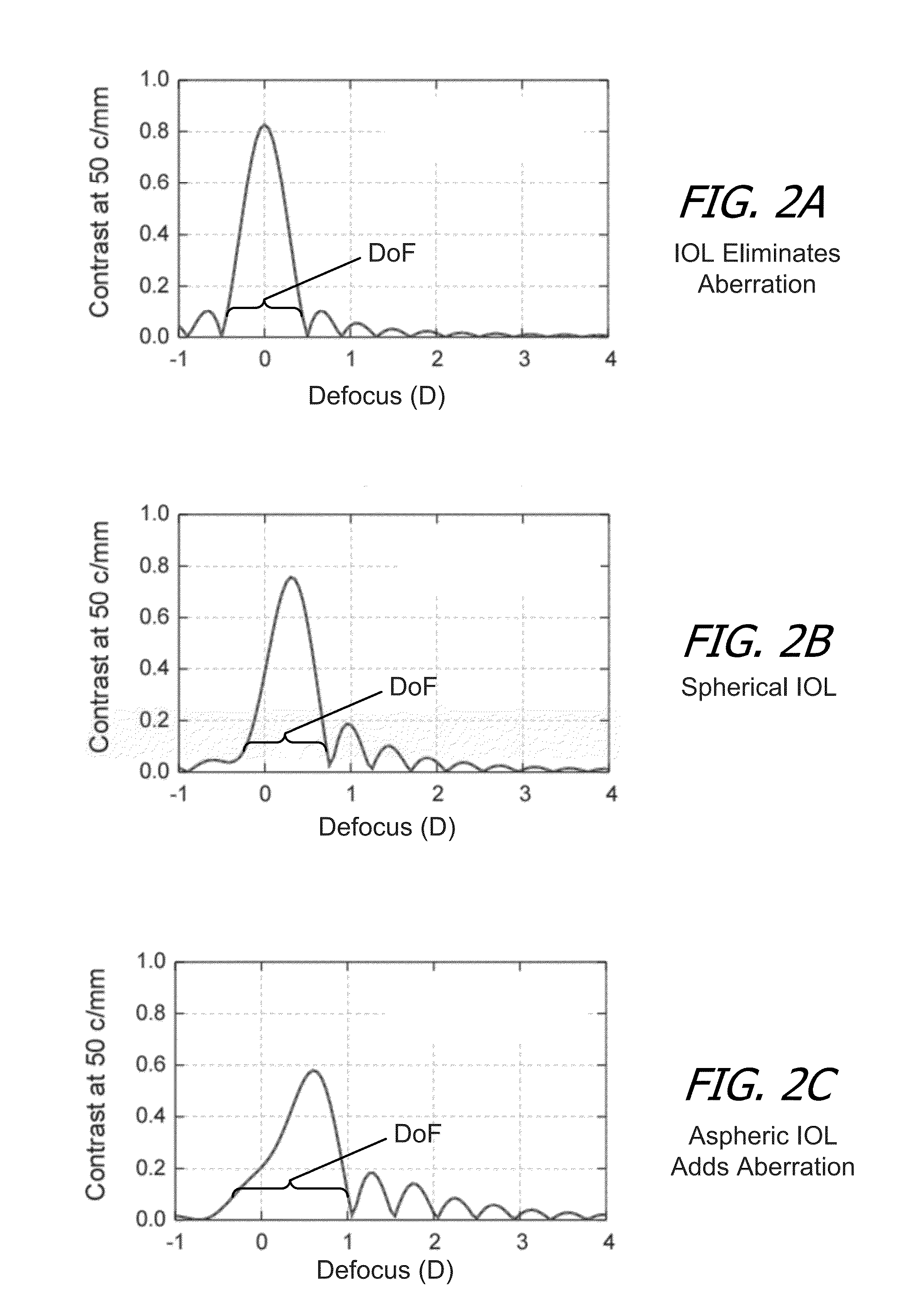Extended Depth of Focus Intraocular Lens and Associated Methods
a technology of intraocular lens and depth of focus, which is applied in the field of intraocular lens, can solve the problems of affecting the use of monofocal iols in pseudophakic monovision procedures, and affecting so as to prolong the depth of focus and improve the visual performance of binoculars.
- Summary
- Abstract
- Description
- Claims
- Application Information
AI Technical Summary
Benefits of technology
Problems solved by technology
Method used
Image
Examples
Embodiment Construction
[0044]The following is a detailed description of the best presently known modes of carrying out the inventions. This description is not to be taken in a limiting sense, but is made merely for the purpose of illustrating the general principles of the invention. Although the exemplary implementations are described below in the context of IOLs that add positive spherical aberration to the eye, the present inventions are also applicable IOLs and ocular implants, including those yet to be developed, that introduce negative spherical aberration (beyond that necessary to eliminate the natural spherical aberration of the eye) as well as other higher order aberrations (e.g., trefoil, other foils and coma).
[0045]As discussed in greater detail below, the present inventions include a variety of vision correction techniques that add spherical aberrations (or other higher order aberrations) to one or both eyes with an IOL to improve depth of focus in the eye. Such improvement is referred to herei...
PUM
 Login to View More
Login to View More Abstract
Description
Claims
Application Information
 Login to View More
Login to View More - R&D
- Intellectual Property
- Life Sciences
- Materials
- Tech Scout
- Unparalleled Data Quality
- Higher Quality Content
- 60% Fewer Hallucinations
Browse by: Latest US Patents, China's latest patents, Technical Efficacy Thesaurus, Application Domain, Technology Topic, Popular Technical Reports.
© 2025 PatSnap. All rights reserved.Legal|Privacy policy|Modern Slavery Act Transparency Statement|Sitemap|About US| Contact US: help@patsnap.com



